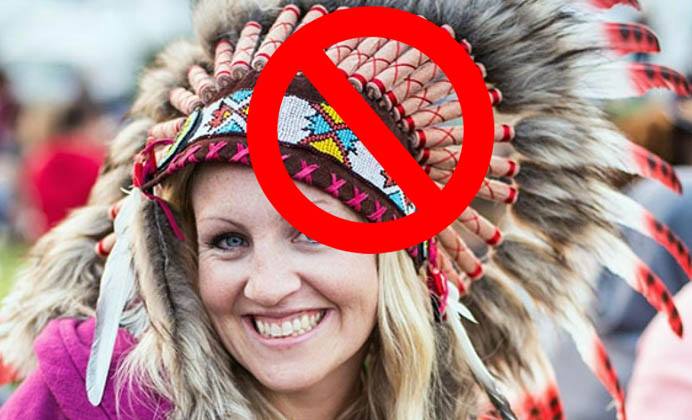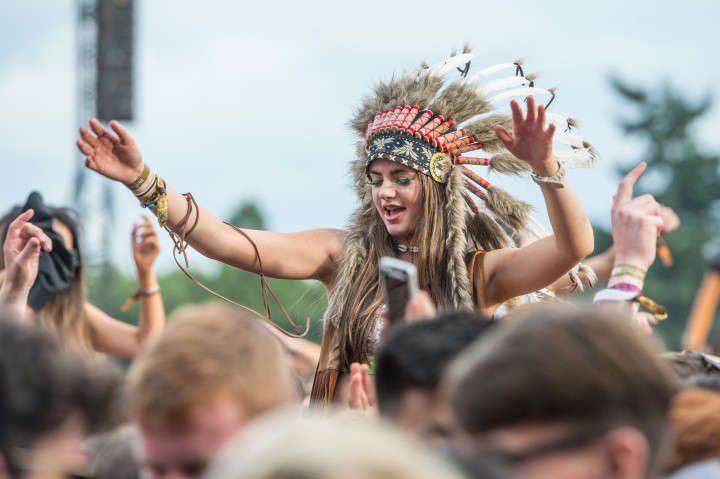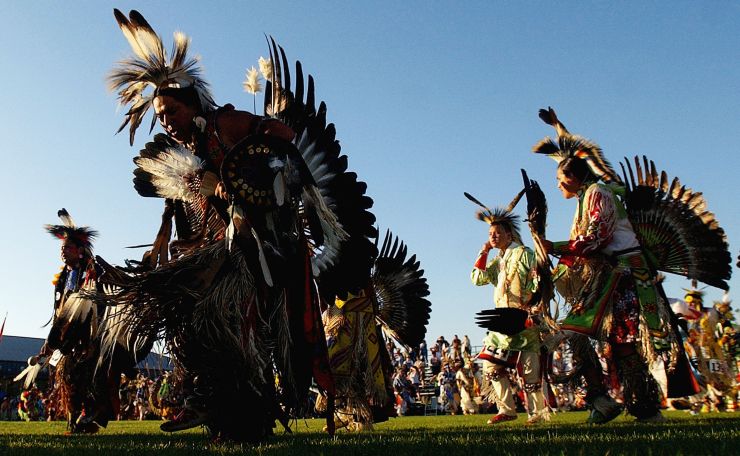The practice of headdresses being worn as fashion pieces — a subject that’s caused outrage for years — has been thrust back into the spotlight this week, with the announcement that the traditional Aboriginal attire is not welcome at Osheaga music and arts festival.

“The First Nations Headdresses have a spiritual and cultural meaning in the native communities and to respect and honor their people, Osheaga, Heavy Montreal and îleSoniq ask fans and artists attending the festivals to not use this symbol as a fashion accessory,” a post on Osheaga’s Facebook page reads.
On Osheaga’s site, it says items that are on the “disallowed list” (which includes selfie sticks) will be confiscated.
The announcement was well received on social media, where this past weekend, users expressed outrage over a woman wearing a headdress at the Winnipeg Folk Music Festival.
READ MORE: Fake headdress at Winnipeg Folk Festival prompts angry backlash
She’s certainly not the first festival-goer to be accused of cultural appropriation, which University of Alberta Native Studies professor Pat McCormack defines as “taking something that’s critical to someone’s cultural tradition and using it for your own purposes.”
Celebrities are some of the worst offenders.
Gwen Stefani has done it a music video. Pharrell Williams has done it for a magazine shoot, Vanessa Hudgens at Coachella, and supermodel Karlie Kloss at the 2012 Victoria’s Secret Fashion show. The lingerie company later apologized.

In 2013, clothing chain H&M removed faux headdresses from its Canadian stores after receiving complaints. Thousands of options come up when you search for headdresses on popular online marketplace Etsy, though.
Why headdresses shouldn’t be worn as fashion accessories
The practice is not only senseless, according to McCormack, but also racist.
“I would say it’s very much like blackface,” she added.
McCormack explained that while the significance of headdresses varies from group to group, headdresses are typically part of a spiritual and ceremonial domain for First Nations people. They are not acquired or worn casually.
“Today we often see them associated with native figures who have high political standing in some way…You’ll also see them in powwows.”
Wearing them as fashion statements can be seen as disrespecting the values of Aboriginal cultures. “It is comparable to the use of faux Aboriginal regalia used by sports teams and their fans, which most Aboriginal people consider a perversion of their cultural traditions and find highly offensive.”
READ MORE: Smithsonian American Indian museum tackles racist stereotypes, mascots in American sports
“In Canada, only Aboriginal people are allowed to use eagle feathers in their regalia, including their headdresses. That means that the faux headdresses…are probably made from turkey feathers, which might say something about the people who wear them too.”
She suggested that if festival-goers want to wear something indigenous, they could reach back into their own cultural roots.
Osheaga isn’t the first festival to ban headdresses. The event joins B.C.’s Bass Coast electronic music festival, which banned “feathered war bonnets, or anything resembling them” last July. Nor is it the last.
On Tuesday, the Edmonton Folk Festival followed suit.
With file from The Canadian Press




Comments